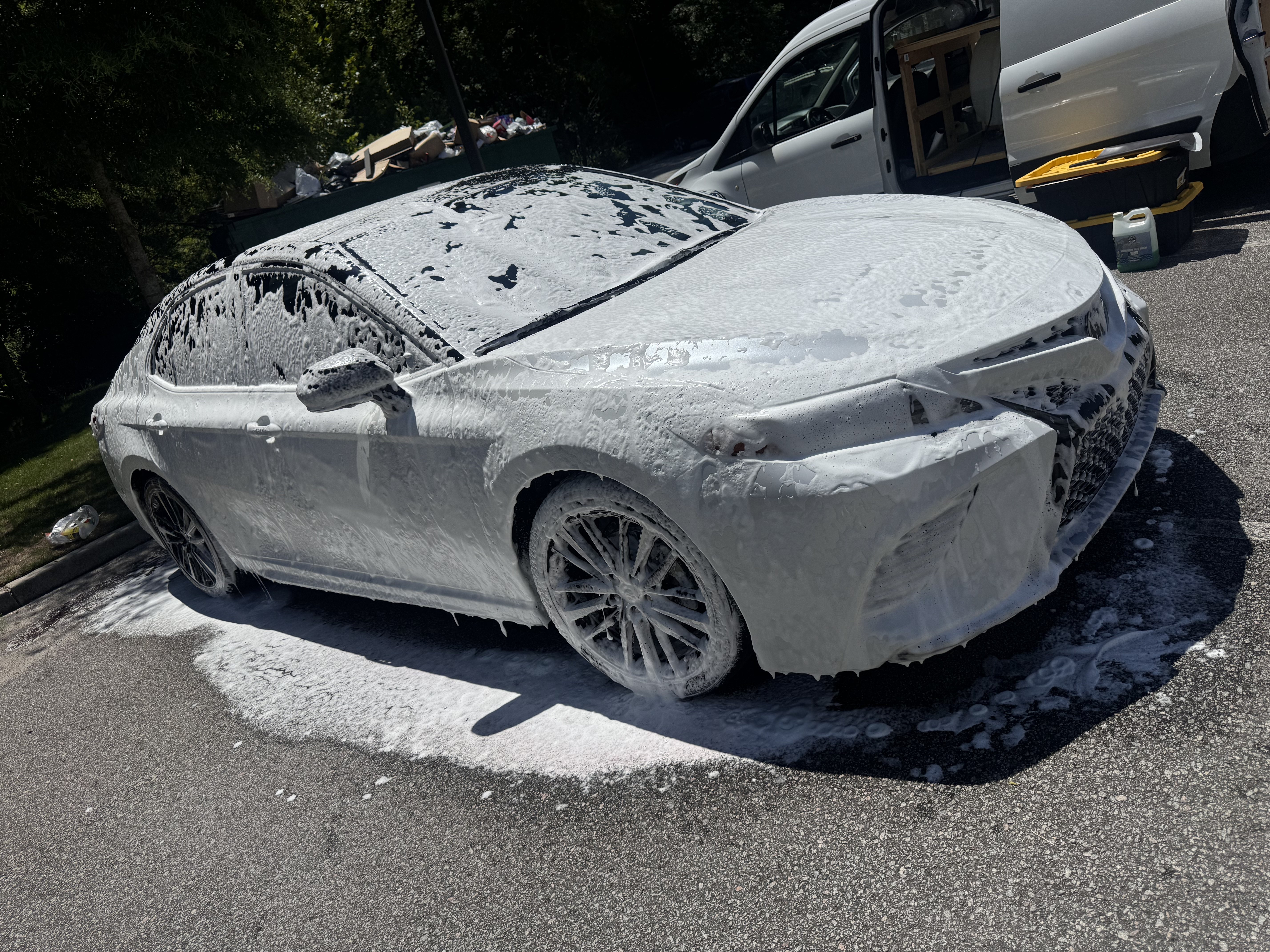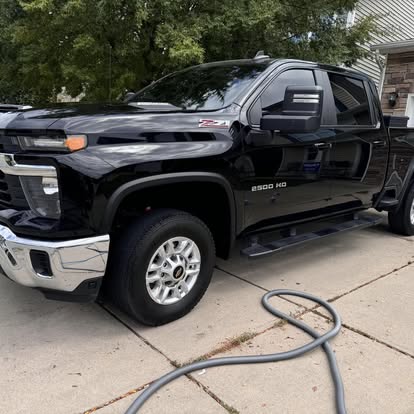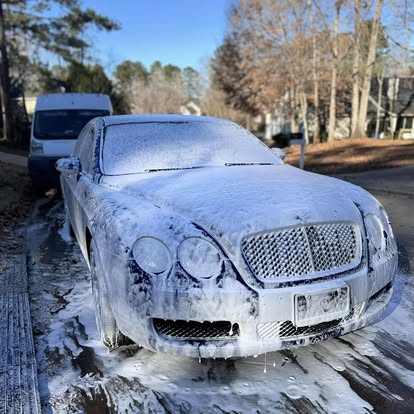"How often should I detail my car?" This question is one of the most common among vehicle owners, and the answer isn't one-size-fits-all. Detailing frequency depends on numerous factors including climate, vehicle use, storage conditions, and personal standards. In South Carolina, where intense sun, high humidity, seasonal pollen, and variable weather create unique challenges, understanding proper detailing frequency becomes particularly important.
Professional car detailing services aren't just about keeping your vehicle looking good—they're preventive maintenance protecting your investment from environmental damage. Just as you change oil regularly to protect your engine, regular detailing protects exterior paint, interior materials, and overall condition from South Carolina's harsh climate conditions.
This comprehensive guide examines all factors affecting detailing frequency and provides specific recommendations for South Carolina vehicle owners based on usage patterns, environmental conditions, and vehicle types.
Understanding South Carolina's Climate Impact on Vehicles
Before determining detailing frequency, it's essential to understand how South Carolina's climate affects vehicles. Our state presents unique challenges that accelerate vehicle deterioration without proper care.
Intense Solar Radiation
South Carolina receives 200+ days of sunshine annually, with summer UV index regularly reaching extreme levels (11+). This intense solar exposure:
- Fades paint: UV radiation breaks down paint molecules, causing oxidation and color fading
- Damages clear coats: Clear coat protection deteriorates, leaving paint vulnerable
- Cracks interiors: Dashboards, seats, and door panels dry out and crack
- Degrades rubber and plastic: Seals, trim, and plastic components become brittle
Vehicles regularly parked outdoors without protection need more frequent detailing and protective treatments than garage-kept vehicles.
High Humidity
South Carolina's average humidity hovers around 70% year-round, reaching 80-90% during summer months. High humidity promotes:
- Mold and mildew growth: Interior fabrics, carpets, and HVAC systems become breeding grounds
- Accelerated corrosion: Moisture accelerates rust on metal components and brake systems
- Musty odors: Humidity trapped in cabins creates persistent unpleasant smells
- Water spotting: Mineral deposits in humidity leave spots on paint and glass
Regular interior detailing with proper drying and anti-microbial treatments becomes essential in this environment.
Seasonal Pollen
South Carolina's spring pollen season is notorious—vehicles parked outdoors become coated in yellow-green pollen within hours. This pollen:
- Contains acids: Can etch paint if left sitting
- Embeds in pores: Penetrates paint pores requiring clay bar treatment for removal
- Triggers allergies: Enters cabin through HVAC systems affecting air quality
- Stains surfaces: Can discolor light-colored paint and fabrics
Spring requires more frequent washing and protective treatments to prevent pollen damage.
Summer Thunderstorms
Frequent summer afternoon thunderstorms bring:
- Acid rain: Industrial pollutants in rain can damage paint
- Water spotting: Mineral-heavy rain leaves difficult-to-remove spots
- Tree sap and debris: Storms knock sap, seeds, and debris onto vehicles
- Flooding potential: Heavy rains can lead to interior water damage
Occasional Winter Weather
While South Carolina winters are mild, occasional freezing temperatures and winter weather events bring:
- Road treatment chemicals: Salt and de-icing chemicals accelerate corrosion
- Temperature fluctuations: Expansion and contraction stress paint and seals
- Reduced washing frequency: Cold weather often means less frequent cleaning, allowing contaminant buildup
These combined factors make South Carolina more challenging for vehicle maintenance than many realize. Proper detailing frequency combats these environmental threats.
Factors Determining Your Detailing Frequency
Vehicle Use and Mileage
Daily Commuters (15,000+ miles/year): High-mileage vehicles accumulate environmental contaminants faster. Road film, brake dust, bug splatter, and interior wear accelerate. Recommended detailing: Every 3-4 months.
Average Drivers (10,000-15,000 miles/year): Moderate use with typical environmental exposure. Recommended detailing: Every 4-6 months.
Light Use (Under 10,000 miles/year): Lower exposure to road contaminants but potentially more static environmental damage if parked outdoors. Recommended detailing: Every 6-12 months, with more frequent washing.
Occasional/Collector Vehicles: Limited driving but often garage-kept in controlled conditions. Recommended detailing: Annually or before shows/events.
Storage Conditions
Outdoor Parking (No Cover): Maximum exposure to sun, rain, pollen, bird droppings, and tree sap. This is the harshest storage condition requiring the most frequent protection. Recommended detailing: Every 3-4 months with protective coatings.
Carport/Partial Cover: Protection from direct sun and rain but still exposed to humidity, pollen, and temperature fluctuations. Recommended detailing: Every 4-6 months.
Garage-Kept: Significant protection from environmental elements. UV exposure minimized, humidity somewhat controlled. Recommended detailing: Every 6-12 months.
Climate-Controlled Garage: Optimal storage with temperature and humidity control. Minimal environmental stress. Recommended detailing: Annually or as needed.
Vehicle Type and Value
Luxury and Exotic Vehicles: Higher-value vehicles typically warrant more frequent care to preserve significant investment. Premium paint finishes and specialized interior materials benefit from more frequent professional attention. Recommended detailing: Every 3-4 months with premium protective treatments.
New Vehicles: New cars benefit from early protection establishing maintenance patterns. Ceramic coatings applied early provide years of protection. Recommended detailing: Full detail with protection within first 3 months, then maintenance every 4-6 months.
Family Vehicles: Higher interior wear from children, food, and daily use requires more frequent interior focus. Recommended detailing: Interior every 3-4 months, full detail every 6 months.
Work Trucks: Commercial vehicles face heavy use and functional priorities over appearance. However, maintaining professional appearance still matters. Recommended detailing: Every 4-6 months with focus on durability.
Classic/Collector Vehicles: Preservation is paramount. Limited use but shows and events demand pristine condition. Recommended detailing: Before shows, full detail annually, maintenance as needed.
Passenger Load
Solo Driver: Minimal interior wear. Recommended interior detailing: Every 6-12 months.
Occasional Passengers: Moderate interior wear. Recommended interior detailing: Every 4-6 months.
Regular Passengers/Family: Higher wear, spills, dirt, and debris. Recommended interior detailing: Every 3-4 months.
Ride-Share/Commercial Use: Constant passenger turnover creates heavy wear and dirt. Recommended interior detailing: Monthly or bi-monthly.
Pet Transportation
Pet owners face unique challenges:
- Pet hair embeds deeply in upholstery
- Odors from pet dander and accidents
- Scratches on leather and door panels
- Dirt and debris from paws
Recommended detailing for pet owners: Interior every 3-4 months with specialized pet hair removal and odor treatment.
Personal Standards
Some owners maintain showroom condition while others prioritize function over appearance. Your personal standards significantly influence appropriate detailing frequency. High standards mean more frequent service regardless of technical need.
Recommended Detailing Schedules by Vehicle Type
Daily Driver (Sedan/Compact)
- Bi-weekly: Basic wash and window cleaning
- Monthly: Hand wash with wax spray, interior vacuum and wipe-down
- Quarterly (Every 3 months): Complete hand wash with clay bar treatment, interior deep clean, leather conditioning
- Bi-Annually (Every 6 months): Full exterior detail with paint correction if needed, complete interior detail with protection application
- Annually: Comprehensive detail including paint inspection, possible ceramic coating, interior restoration if needed
Family SUV/Minivan
- Bi-weekly: Basic wash and interior vacuum
- Monthly: Hand wash, interior cleaning focusing on high-use areas
- Quarterly: Complete exterior detail, interior deep clean with stain treatment and upholstery extraction
- Bi-Annually: Full detail with paint protection, comprehensive interior restoration including cargo areas
Luxury/Performance Vehicle
- Weekly: Hand wash or waterless wash maintaining pristine appearance
- Monthly: Complete hand wash with quick detailer, interior maintenance cleaning
- Quarterly: Full detail with paint inspection, interior deep clean
- Bi-Annually: Comprehensive detail with paint enhancement, coating maintenance, interior restoration
- Annually: Complete inspection and correction of any paint or interior issues
Work Truck
- Monthly: Thorough wash removing job site debris
- Quarterly: Complete exterior detail focusing on durability, interior cleaning
- Bi-Annually: Full detail addressing work-related wear and tear
Classic/Collector Car
- Before Events: Complete detail ensuring show-ready condition
- Quarterly (if driven): Maintenance detail preserving condition
- Annually: Comprehensive detail with preservation focus
- Before Storage: Full detail with long-term protection products
Seasonal Detailing Considerations in South Carolina
Spring (March-May)
Primary Concern: Pollen season reaches peak levels.
Recommended Actions:
- Increased wash frequency (weekly if parked outside)
- Clay bar treatment to remove embedded pollen
- Application or renewal of protective coatings
- Cabin air filter replacement
- Interior vacuuming to remove pollen tracked inside
Full Detail: Early to mid-spring before summer heat arrives.
Summer (June-August)
Primary Concerns: Intense UV exposure, high temperatures, frequent thunderstorms, tree sap.
Recommended Actions:
- Bi-weekly washing to remove rain spots and debris
- UV protection focus: Ensure protective coatings are intact
- Interior conditioning to prevent cracking from heat
- Engine bay cleaning to prevent overheating from debris buildup
- Headlight inspection and restoration if clouding develops
Full Detail: Early summer to prepare for intense heat exposure.
Fall (September-November)
Primary Concerns: Falling leaves, temperature fluctuations, preparation for winter.
Recommended Actions:
- Removal of leaf debris from exterior and ventilation systems
- Inspection of paint and protection condition after summer
- Interior deep clean before winter when windows stay closed
- Application of durable protective coatings before winter
Full Detail: Mid-fall preparing for cooler months.
Winter (December-February)
Primary Concerns: Occasional freezing temperatures, road treatment chemicals, reduced washing frequency.
Recommended Actions:
- Undercarriage washing after salt/chemical exposure
- Protective wax layer to shield from winter elements
- Interior moisture management preventing mold
- Gentle washing during warmer winter days
Full Detail: Late winter/early spring transition preparing for pollen season.
Signs Your Vehicle Needs Immediate Detailing
Regardless of your regular schedule, certain conditions indicate immediate professional automotive detailing is needed:
Exterior Warning Signs
- Water doesn't bead: Indicates protective coatings have failed
- Visible contaminants: Rough-feeling paint from embedded particles
- Fading or dullness: Loss of paint gloss and color depth
- Water spotting: Mineral deposits etched into paint
- Bird droppings or tree sap: Acidic contaminants that etch paint if not removed quickly
- Swirl marks and scratches: Visible imperfections affecting appearance
- Cloudy headlights: Reduced visibility and poor appearance
Interior Warning Signs
- Persistent odors: Musty, smoky, or pet smells that don't dissipate
- Visible stains: Spots on upholstery or carpets
- Sticky surfaces: Dashboard or controls with residue buildup
- Excessive dust: Dust accumulation on all surfaces despite cleaning attempts
- Cracking leather: Dry, deteriorating leather needing conditioning
- Allergen symptoms: Increased allergies or respiratory irritation in vehicle
- Visible mold or mildew: Growth on surfaces or musty smell
Don't wait for scheduled details if these conditions develop—address them promptly to prevent permanent damage.
Building Your Personal Detailing Schedule
Use this framework to create your customized detailing schedule:
Step 1: Assess Your Baseline
- Vehicle type and value
- Storage conditions
- Annual mileage
- Passenger load
- Pet transportation
- Personal standards
Step 2: Determine Base Frequency
Using the recommendations above, establish your base detailing frequency. For most South Carolina drivers, this is every 4-6 months for full details.
Step 3: Add Seasonal Adjustments
Plan additional services during challenging seasons:
- Extra spring washes during pollen season
- Summer protection focus
- Fall preparation detail
- Winter maintenance as needed
Step 4: Schedule Maintenance Between Details
- Bi-weekly or monthly washes
- Weekly interior tidying
- Immediate attention to spills or contaminants
- Regular vacuum and wipe-downs
Step 5: Document and Track
Keep records of:
- Detailing service dates
- Services performed
- Costs
- Before/after photos
- Observed condition changes
This documentation helps optimize your schedule and demonstrates maintenance for resale.
Cost-Benefit Analysis of Regular Detailing
Costs of Regular Professional Detailing
- Basic detail (every 4-6 months): $300-$600 annually
- Standard detail (every 4-6 months): $600-$1,200 annually
- Premium detail (every 3-4 months): $1,200-$2,400 annually
Benefits and Value
- Resale value preservation: $1,000-$5,000+ higher resale value
- Major repair prevention: Avoiding $500-$2,000 in paint correction or interior restoration
- Extended component life: Leather, rubber, and plastic last years longer
- Health benefits: Cleaner air quality preventing medical issues
- Enjoyment value: Immeasurable satisfaction of pristine vehicle
The return on investment is clear—regular moderate expenses prevent major restoration costs while preserving value and enhancing ownership experience.
DIY Maintenance Between Professional Details
Maximize time between professional car detailing services with proper maintenance:
Weekly Tasks (15-30 minutes)
- Quick wash or rinse removing surface contaminants
- Interior vacuum of floors and seats
- Dashboard and console wipe-down
- Window cleaning
Monthly Tasks (1-2 hours)
- Thorough hand wash with quality soap
- Wheel and tire cleaning
- Window detailed cleaning
- Interior deep vacuum including crevices
- Surface cleaning and conditioning
- Quick spray wax application
Immediate Response
- Spill cleanup preventing staining
- Bird droppings removal within 48 hours
- Tree sap removal promptly
- Water spot removal after rain
These maintenance habits extend protection from professional details and keep vehicles presentable between services.
Conclusion: Develop Your Optimal Detailing Schedule
There's no universal answer to how often you should detail your car—the optimal frequency depends on your specific circumstances, vehicle, and South Carolina's environmental challenges. However, most South Carolina vehicle owners benefit from:
- Full professional detail: Every 4-6 months
- Seasonal washing: Bi-weekly to monthly depending on exposure
- Interior maintenance: Monthly vacuum and cleaning
- Protective treatments: Annual ceramic coating or bi-annual wax/sealant
- Immediate attention: To any contamination or damage
Regular professional automotive detailing isn't an expense—it's an investment in vehicle preservation, health, and enjoyment. South Carolina's climate demands more frequent care than mild regions, but proper maintenance prevents the expensive repairs and deterioration that neglect causes.
Build a detailing schedule appropriate for your situation, stick to it consistently, and adjust based on results and changing conditions. Your vehicle will maintain its appearance, value, and comfort for years longer than neglected vehicles.
Ready to establish your optimal detailing schedule? Contact Mikah's Auto Detailing today to discuss your vehicle's specific needs and develop a customized maintenance plan. We provide professional car detailing services throughout Columbia SC and surrounding areas, helping vehicle owners protect their investments with appropriate service frequencies. Our experienced technicians assess your vehicle's condition, understand your usage patterns, and recommend schedules that deliver optimal results without unnecessary expenses. Schedule your consultation and first detail today—start protecting your investment with proper maintenance frequency.


